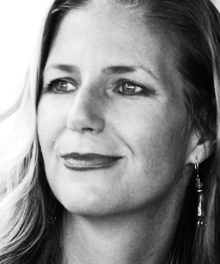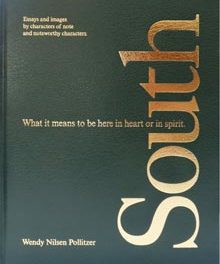The devil seems to be dogging me these days.  Oh, I don’t mean I’ve been plagued by more sin and temptation than usual. That stuff’s par for the course with me. What I mean is that, lately, I keep finding myself engaged in conversations about the devil.
Oh, I don’t mean I’ve been plagued by more sin and temptation than usual. That stuff’s par for the course with me. What I mean is that, lately, I keep finding myself engaged in conversations about the devil.
That’s right – the devil. Satan. Beelzebub. Old Scratch.
He came up in my Bible study class last week, which isn’t particularly unusual, I suppose. But he keeps coming up in casual conversation with regular people, too – both religious and otherwise. I don’t know about you, but I’m not prone to regular chit-chat on this topic. I don’t tend to think about the devil much, and when I do, I’m not quite sure what to make of him. I’m well aware that plenty of folks in our post-enlightenment age don’t believe in the concept, and I’m not here to challenge them. Baudelaire wrote that “the best trick the devil ever pulled was convincing the world he wasn’t real,” and Verbal Kint reiterated the sentiment more recently in the chilling film The Usual Suspects. I think it’s a great line, and am inclined to agree with it, but I have little urge, these days, to argue something that can’t be proved.
No, what fascinates me is that people are fascinated by the devil. Even people who don’t believe in him. I recently reconnected with an old friend on Facebook, a guy I knew in graduate school who now lives in South Korea, where he teaches English as a second language. A more devout atheist you’re unlikely to find; he’s never had any use for the idea of God – and yet, he really digs the devil. His favorite book, he tells me, is The Master and Margarita, in which Satan makes a visit to the Soviet Union. I turned him on to The Screwtape Letters, C.S. Lewis’ adventure in devilry, and, in spite of – not because of – its Christian message, he thoroughly enjoyed it. “I love books about the devil!” he told me. “Of course, he’s only a literary device.”
Of course.
Around the same time, I was having trouble coming up with a subject for this week’s column, and I posted my dilemma on Facebook. I immediately received lots of suggestions, but they weren’t the ones I’d expected. The shaky economy? Nope. The war in Afghanistan? Uh uh. Michelle Obama’s toney arms? Not even.
Instead, one friend wrote: “Here’s a good topic: Does the devil exist? Discuss ‘The devil made me do it.’ With today’s headlines, you could write a masterpiece!”
Another friend suggested: “What about heaven and hell? Do they really exist, or are they simply states of mind, as I suspect?”
Meanwhile, everyone seemed to be taking a Facebook quiz entitled “Where Will You Go After You Die?” I took it, and was assigned to “Reincarnation.” The friend I mentioned above got the same results. I’d been hoping for heaven; she wanted nirvana. “Or even a decade or two surfing the astral wash,” she quipped.
According to Facebook, we may both end up as livestock in Nebraska.
Where am I going with all this, you may wonder. To be honest, I’m not sure. As I write, we’re smack in the middle of Holy Week. By the time you read this, Easter will have come and gone. This may have been a big deal to you… or not. You may have attended church services every day last week, enjoyed a solemn Maundy Thursday or Good Friday choral performance, finished up your Lenten discipline, and partaken of an Easter feast with your family. Maybe you went to church on Sunday for the first time in a year. Maybe you just hit an egg hunt or two with your children. Or maybe you did “none of the above.” More and more of us are checking that box each year.
We’re at an interesting juncture in our country’s history. In honor of Holy Week (and I use the word “honor” somewhat ironically), Newsweek featured a cross on its cover, comprised of the words: “The Decline and Fall of Christian America.” The feature story, written by the magazine’s editor (and my fellow Sewanee grad) Jon Meacham, bore an even starker title: “The End of Christian America.” Reading the online comments that followed the piece, it was clear that those words, while devastating to many readers, were reason to rejoice for many others. We are a nation split on this issue, and that’s a fairly new development.
Meacham, who calls himself “an observant, but deeply flawed, Episcopalian,” quotes some statistics that may or may not surprise you:
“According to the American Religious Identification Survey… the percentage of self-identified Christians has fallen 10 percentage points since 1990, from 86 to 76 percent. The Jewish population is 1.2 percent; the Muslim, 0.6 percent. A separate Pew Forum poll echoed the ARIS finding, reporting that the percentage of people who say they are unaffiliated with any particular faith has doubled in recent years, to 16 percent; in terms of voting, this group grew from 5 percent in 1988 to 12 percent in 2008—roughly the same percentage of the electorate as African-Americans… Meanwhile, the number of people willing to describe themselves as atheist or agnostic has increased about fourfold from 1990 to 2009, from 1 million to about 3.6 million. (That is about double the number of, say, Episcopalians in the United States.)”
For twenty years, I was part of this great falling away. As recently as a few years ago, I’d have been one of those readers rejoicing in the comment section after Meacham’s article. I don’t feel like rehashing my “faith journey” here (can somebody please come up with a better, less hokey, term?) any more than you regulars feel like re-reading it. Let’s just say it’s not lost on me that I’ve become a Christian at a rather inconvenient moment in history. How much easier it would have been to start believing back when everybody else did! Back when it was the norm. Back when it was just what you did…
But then, that approach has never really worked for me. With anything. My parents did their duty. They drove me to church every Sunday. They said my prayers with me every night. But it never really took. As a child, the Christian faith never really captured my heart or my mind. Maybe because I never had to think about it, much? Because it was… just what you did?
I believe a lot of people turned away from the church for the same reason – we simply failed to be engaged by a faith that had, in many cases, been tamed, sanitized, socialized, and stripped of its spiritual power even as it sought to gain political power. (And yes, the rise and fall of the Religious Right is a whole ‘nother story, and perhaps I’ll write it sometime.) So, while I am apprehensive and sorrowful about the “End of Christian America” – especially since so many of our fundamental laws, and our common moral and ethical principles, are drawn from the Judeo-Christian tradition – I am actually rather encouraged at the prospects for Christianity itself. America was never supposed to have a “national religion.” And the Christian church was never meant to be a stand-in for the federal government. The two have always made strange bedfellows, and as our country grows more pluralistic, that mismatch becomes ever more glaring. The sooner they disentangle, I think, the better for the Christian church.
These are hard truths for me to face, as one who’s now passionate about her faith and its potential to transform individual hearts and whole societies. (A friend of mine – a smart woman who thinks hard about these things and struggles against the tide, as I do – put it so nicely when she said, “Christianity is a template for peace, and it’s the only one I’ve found.”) As a traditionalist by nature, I worry about raising my child in a faith that may very well be considered “counter-cultural” by the time she’s grown. But I worry even more about raising her in that same secular, materialist culture without the “deeper magic” of that faith to sustain her. (I will have to start paying royalties to the C.S. Lewis estate soon…)
But my great hope is that a leaner, meaner church will mean a truer, deeper faith… one that can go about the business, more successfully, of bringing God’s kingdom a little closer.
Despite the decline of Christianity, Newsweek’s Meacham contends: “America is not a post-religious society—and cannot be as long as there are people in it, for faith is an intrinsic human impulse. The belief in an order or a reality beyond time and space is ancient and enduring.”
I agree. The way I see it, when there are so many folks are out there dishing about the devil – and heaven and hell, and nirvana, and even Nebraska – the recent rumors of God’s demise have been greatly exaggerated.
Speak of The Devil







